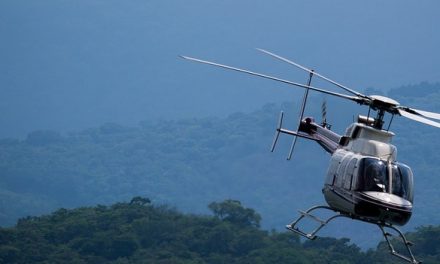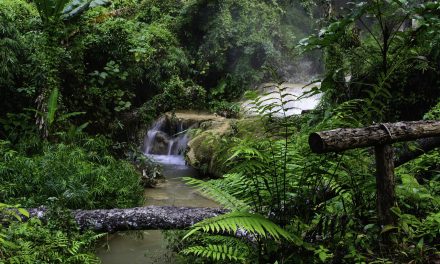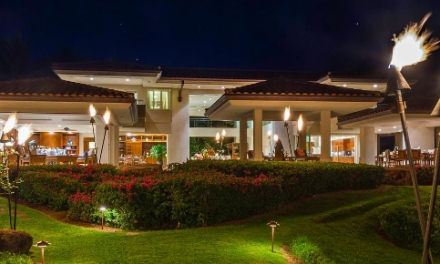One of the big ways that the cartel gets drugs into and out of the country is over the railways. They’d already taken control of the various border stations and checkpoints, so trains were the most convenient way to move a large amount of material into the rest of South America. It’s the strangest thing, Gaz may have used her explosives background to buckle a few strategic miles of railroad track, perhaps immediately around a blind turn with limited vehicle access. That repair was going to take them a long time, let alone picking up all of the shipment off of the jungle floor.
As word was spreading that the route was all but impassible, we wanted to see if there were any other juicy targets at the rail yard itself. Obviously they had to be loading the merchandise into the trains from somewhere, and if we could get a bead on their internal supply routes, it could help us when we started to take an active interest in their stockpiles. Lady luck was looking out for us that day, at least until she got bored and wandered elsewhere.
Held up at the train depot were two conspicuously well-guarded moving vans, looking like they had just been stopped from putting their cargo on a new train – a train that wouldn’t be able to make the route any longer, thanks to Gaz. She and I had the same thought, nodded, and went to work. After all, we’d gone through all the effort to sneak up to a heavily-defended coke distribution center, may as well take a few bonus objectives down while we were here, right?
Eventually the trucks were turned back, headed back toward whatever supply house they came from. Looking at the map, it was soon obvious that we’d lose them in the crush of small towns and villages, the winding streets and dusty passages, long before they lead us to their base of operations. There was simply no opportunity to tail them successfully. We had been equipped for a limited-engagement sapping job, not vehicular recon. We decided to take out the vans en route; reducing the cartel’s supply was supposed to be one of our mission objectives, right?
It turns out that the vague and intentionally-distant overseers of this little covert escapade did not appreciate our extracurricular affairs – those drugs were supposedly going to be intercepted by the rebels before they returned to base, and then sold to help fund the guerilla war they were waging. The fact that we blew up a million dollars of cocaine turned out to be a bad move.
Just so everyone playing at home sees things from my perspective, we’re here to destabilize and cripple a government-sized drug cartel that has taken heavy-handed control of every aspect of life down here in Bolivia. Our mission brief includes the whole-sale destruction of their means of production, distribution, political and social influence, and heavy military reserves. In all of this, for some reason, we weren’t supposed to go after the drugs? The bosses weren’t very clear on exactly what they were mad about, they just did a lot of yelling and fist-pounding on the table.
Something tells me the rebels were the ones who really had a bee in their bonnet about this. I know an inflated bank account can do a lot for an insurgency, but wasn’t the original sob story that all of the cocaine had become a poison to the hard-working people of this beautiful country, and that its evil presence must be stomped out at every turn?
Okay, I admit I didn’t pay much attention to their reasons for having us here either. Like I said, one group is just as likely to be corrupt as another, and I’m not paid to care. I’m paid to do a job, and apparently now I’m paid to get my babysitters to check off mission plans before we leave HQ each time.
I thought I left all the political bureaucracy crap behind when I moved up out of the regular infantry. Apparently not.














